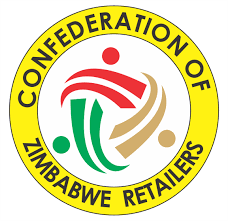Account for allocated forex resources -CZR
GOVERNMENT should speedily set up an inter-agency committee to investigate companies that accessed foreign currency in the auction system for retooling, but are offloading goods on the black market, the Confederation of Zimbabwe Retailers (CZR) has said.
CZR believes the distortion of the formal supply chain, which has resulted in the increased informalisation of the economy has led to goods being provided to the informal traders who tend to sell goods in forex hence creating unnecessary demand for the United States dollar.
This comes following the growing concern over unscrupulous behaviour by businesses, amid consumer outcry over the recent spate of ridiculous speculative price increases, which are being driven by wild parallel market rates, as well as artificial shortages of some basic goods in established shops.
For the past two weeks, exchange rates and prices for basic goods have risen by more than 100 percent, which has left consumers in shock.
Reacting to the recent spate of price increases linked to exchange rate volatility amid the depreciation of the local currency, CZR has suggested that companies benefiting from the foreign currency auction system must account for money allocated “to the last dollar”.
Dr Denford Mutashu, who leads the retailers lobby group, said the association was shocked by the unjustified price increases and attacks on the foreign currency auction system, which has for a long period availed cheaper foreign currency to companies for retooling and purchase of raw materials, among others.
“It’s critical for the Government to set up an inter-agency committee to investigate companies that accessed forex and make each one of them account for the last dollar,” he said in a statement.
“The ongoing Government and private sector dialogue to remove impediments to the doing business environment is highly commendable as the goal is to protect consumer and business sustainability.”
Dr Mutashu castigated unscrupulous manufacturers and suppliers who are offloading basic goods onto the informal market, thereby creating artificial shortages in formal retailers and wholesalers.
He said consumers should not suffer at the hands of any business establishment.
Dr Mutashu said the rampant practice by some manufacturers and suppliers who are offloading basic goods onto the informal market to create artificial shortages in formal retailers and wholesalers has seen some shops struggling to restock while the insatiable appetite for the USD and shunning of the local ZWL has created market failure.
“CZR, however, calls upon all unregistered tuck shops and small to medium businesses to register with authorities, and manufacturers and suppliers should stop supplying goods to ‘runners’ and unregistered businesses,” he said.
“The continued supply of goods to unregistered businesses has trigged unwarranted shortages on the market. As CZR, we unapologetically call for the restoration of formal channels of supply.
We used to have a strong supply chain but now through these middlemen, goods are being offloaded in the informal market where they tend to sell goods specifically in forex.
“People are earning local currency and they end up being forced to buy forex from the parallel market, which has created unnecessary demand for the United States dollar leading to a rise in exchange rates,” he said.
“People without shop licences, but holding United States dollars are now being given goods, which has led to the distortion of the supply chain.”
Dr Mutashu also said CZR was engaging with the Government for a smooth transition of all possible interventions that support and protect the consumer and restore sanity in the marketplace
He said the association has noted that some sector players and related economic agents are withdrawing Point of Sale (POS) machines from customers that wish to pay in ZWL, which smacks economic sabotage.
Economist and senior institutional analyst from Lupane State University, Ms Shynet Chivasa, said the growth of the informal sector has contributed to exchange rate distortion.
“The increased usage of the US dollar has resulted in the increased demand for the currency and the black-market rate is rising so fast because our economy generally has informalised and it looks like there is not much business taking place in the formal economy,” she said.
“And if we have 60 percent of the economy being informal, it means much demand for forex is coming in the informal sector who are big players in the black market because those informal sector players are not catered for by the auction system.”
Ms Chivasa said there is a need to create confidence in the local currency, which will create its demand.
“This usually happens whenever the nation approaches the general elections.
“There is that speculative behaviour where everyone is not sure of what is going to happen so everyone wants to be as secure as they think it’s possible.
“Therefore, people want to hold their savings in the form of foreign currency, which has also resulted in increased exchange rates,” said Ms Chivasa.
“Of late, you find that in supermarkets there are certain products, which are now being sold specifically in foreign currency, which again means that non-acceptance of local currency is increasing, therefore increasing pressure on exchange rate.”-chronicle











